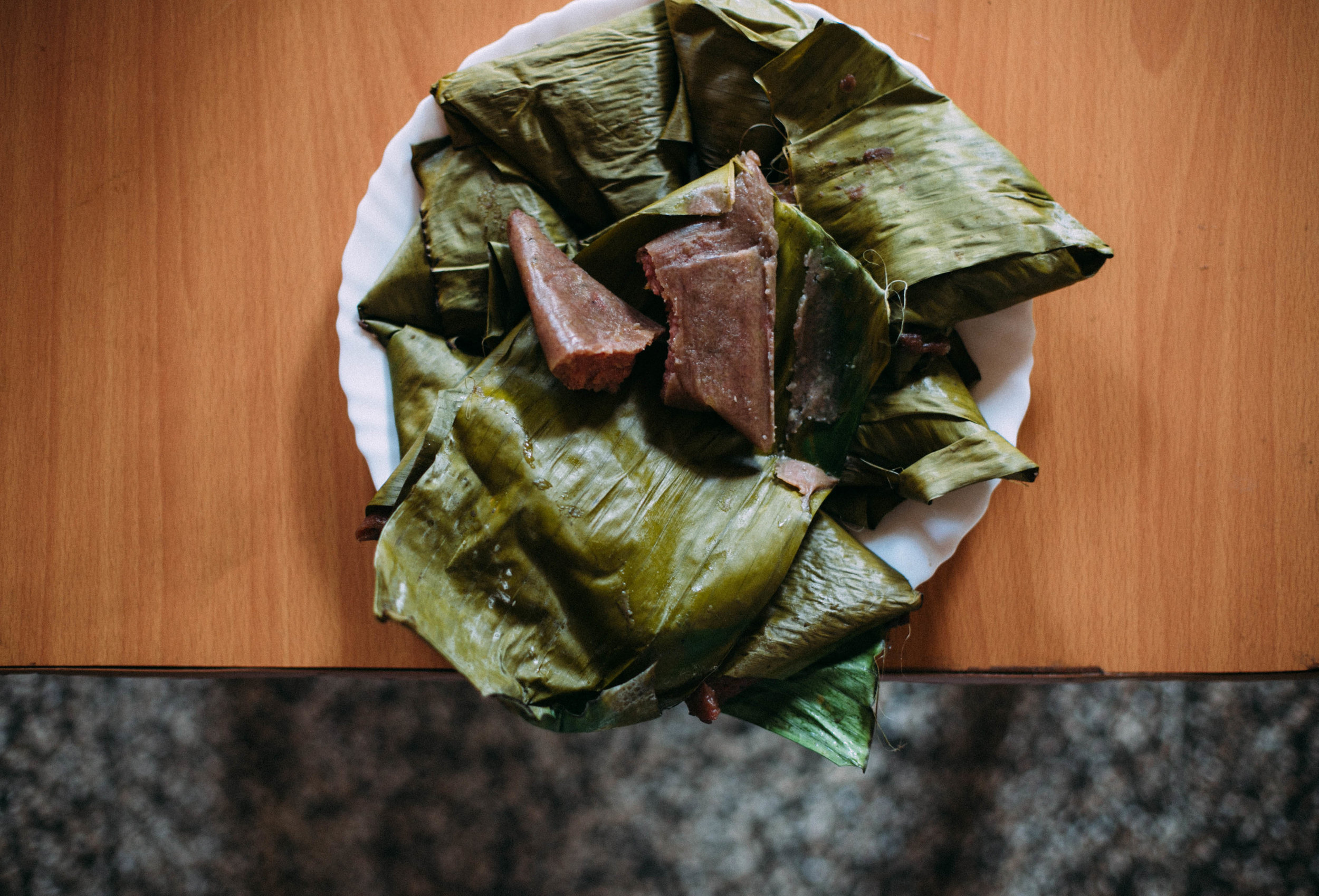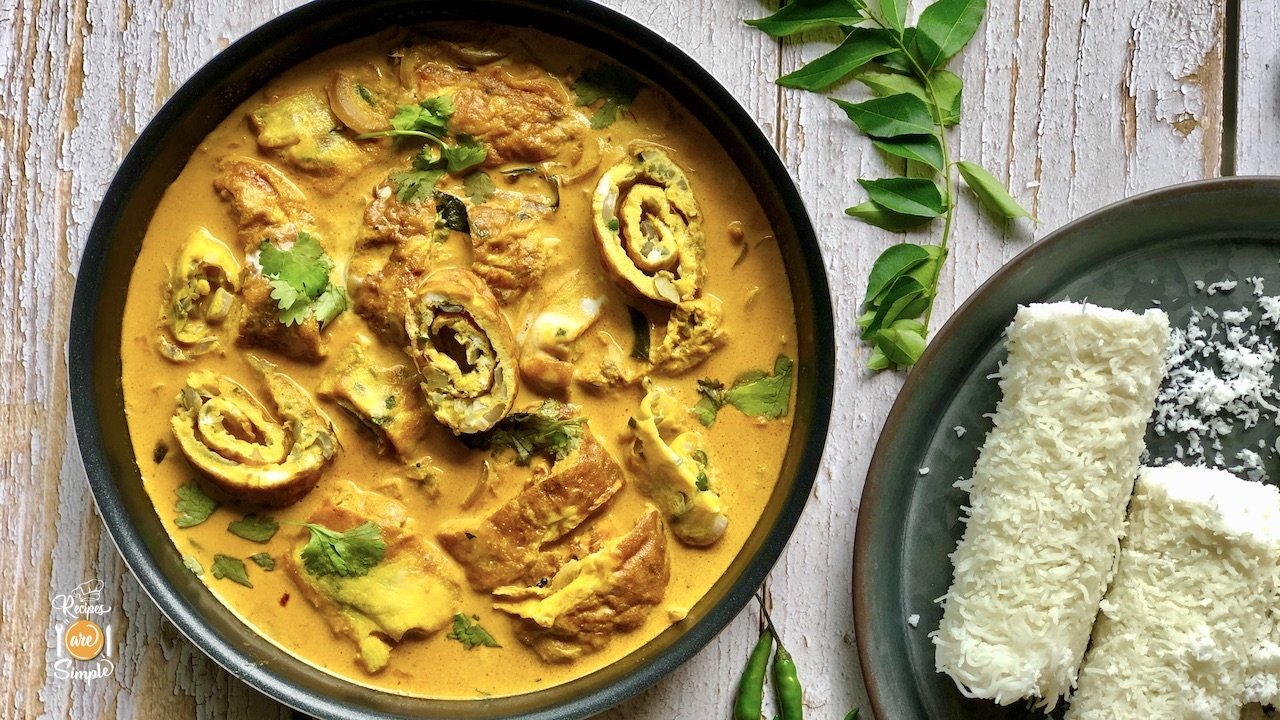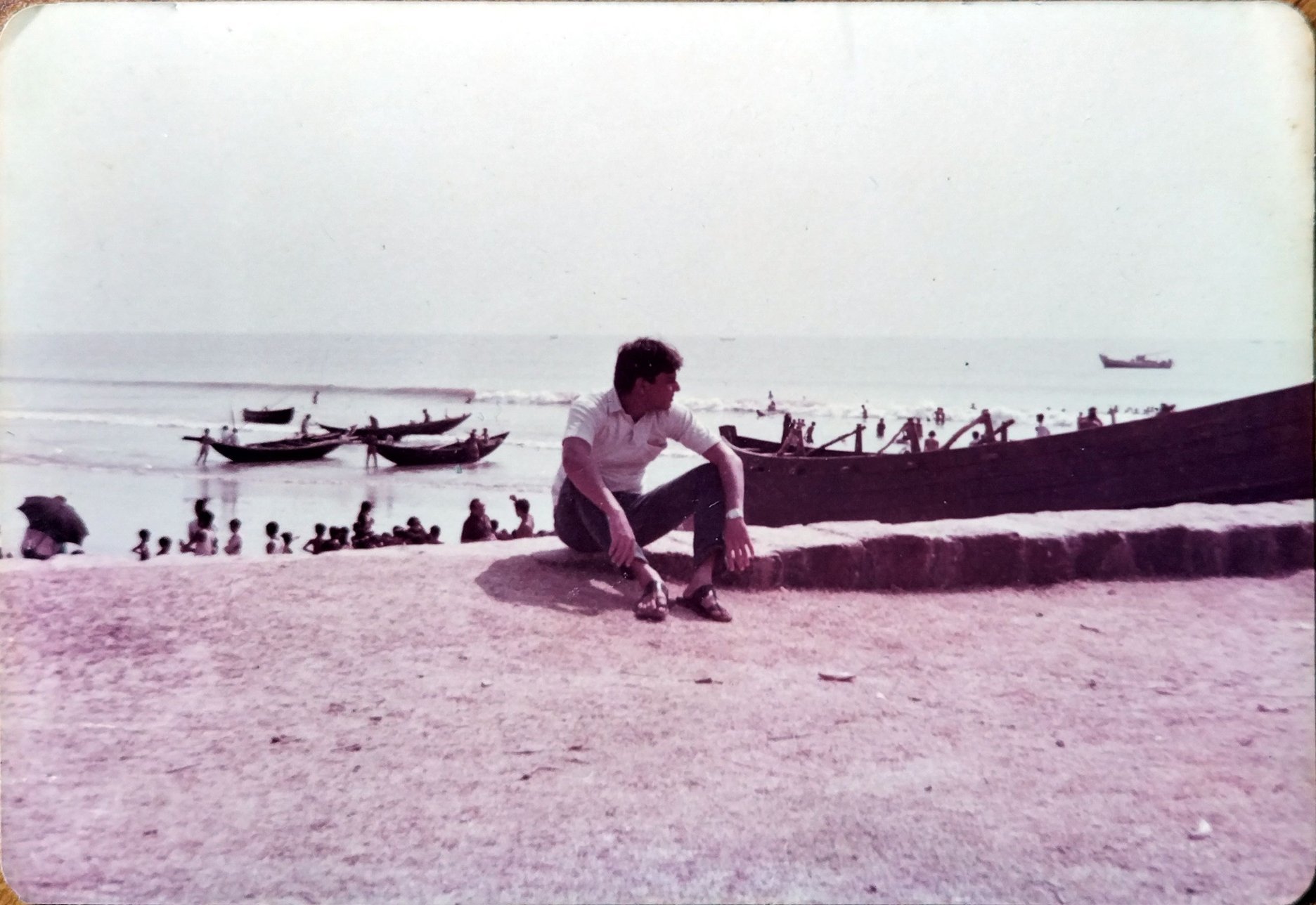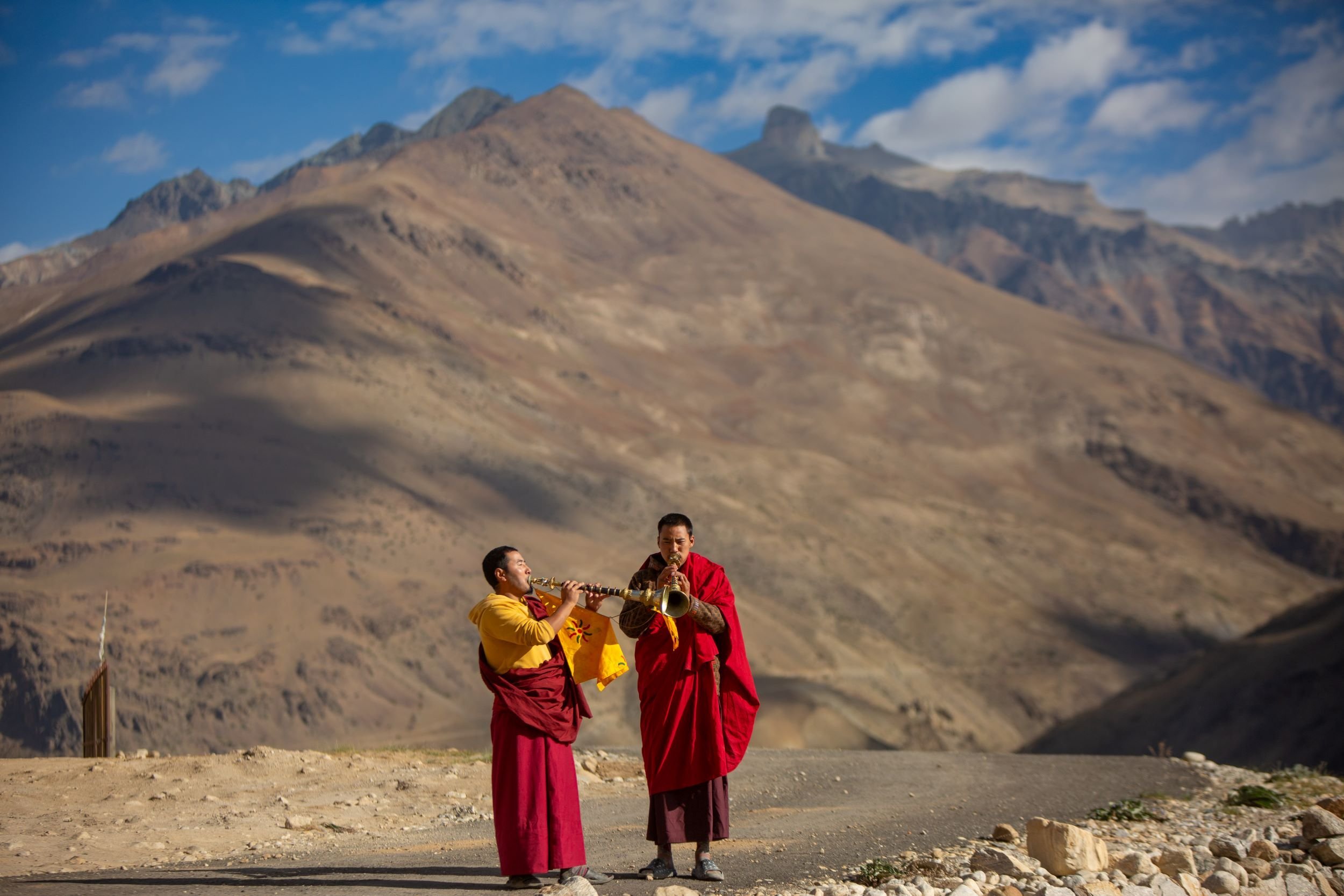Tea with Ummi Abdulla

#WomenInFood Meet the women who are shaping the food and culinary industry in India; the pioneers, the iconoclasts, and the quiet heroes.
It is the kind of afternoon where the sunlight is the colour of a rich mutta maala.
I’m in Kozhikode, or Calicut, as it is better known, to meet Ummi Abdulla for tea. I arrive at her house to find myself ushered into the living room. A long wooden bookshelf cuts off the room from the rest of the house. Never one to give up a chance to peer into a bookshelf, I find an eclectic mix – cookbooks, translations of the Qur’an, a couple of Agatha Christie anthologies, even a copy of The Nanny Diaries.
Ummi joins us a few minutes later, having finished her afternoon prayers. In a beautifully draped burnt orange sari, with a diamanté brooch holding the pleats in place, the 84 year-old has a warmth that can put even the most nervous interviewer at ease.
When I was growing up, Ummi Abdulla was a household name in my family. For the longest time, she and her recipes were referred to with so much familiarity, I simply assumed she was a relative I'd never met. It was only years later, when I started cooking myself, that I realised that Ummi Abdulla was in fact not a long-lost relative, but a cookbook author who was responsible for canonising the Mappila cuisine and making it accessible for generations to come. It wouldn't be an exaggeration to say that that there isn't a single Mappila family that doesn't own a copy of Malabar Muslim Cookery between them.
Ummi comes from a large family with a predilection for the arts. Her older brother, B.M Gafoor, was a renowned cartoonist and her sister, B.M Suhara is a Kerala Sahitya Akademi award-winning novelist. Her husband, V Abdulla, who worked at Orient Longman in Chennai, also occasionally wrote for The Hindu and Mathrubhumi, and produced two films. It was Abdulla who encouraged Ummi to start writing cookbooks. When she realized that her grandmother, from whom she picked up several recipes, did not have precise measurements, Abdulla bought her a weighing scale, which anyone who has ever dabbled in recipe-writing will tell you is the single most empowering tool in recipe development. Since then, there has been no looking back.
Ummi is media savvy, and the anecdotes she shares are practiced, polished answers that in spite of recounting numerous times, are narrated with freshness and enthusiasm. She begins a story about a kitchen fiasco from a couple of years ago, and follows it up with “Nazneen always says – Umamma, please stop telling this story. You tell everybody this!” Nazneen is Ummi’s granddaughter, who is carrying her grandmother’s legacy forward on social media – running Ummi’s Youtube channel and Facebook page, which has more than 25,000 followers. She also collaborated with Ummi on her latest book, A Kitchen Full of Stories.
Although Ummi is best known for her seminal cookbooks on Mappila cuisine, she has also worn several other hats over the course of her career. With a diploma in Canning, Pickling and Preserving from Adayar Catering Institute, she set up a pickle factory called Tastewell pickles which supplied 60 kilograms of lime and mango pickle every month to the Taj and the now-closed Sudarshan Hotel in Chennai. For a decade, she has served as secretary on the board of the Muslim Education Society, Chennai. Besides this, she has catered from home for more than half her life, conducted cooking classes in several cities, and even consulted with hotels to teach chefs about Mappila cuisine. One such assignment took her to Vietnam where she crinkles her nose as she remembers, “They add fish sauce in everything!”
Her recipes have the sort of fame that makes them instantly recognizable. She tells me about the time her recipe for Green Pea Supreme, a hit amongst those who attended her classes, was plagiarized and entered in a Femina magazine contest. One of her readers recognized the recipe as Ummi’s and contacted her. She threatened to sue Femina, and in apology, they sent her the prizes for all the contests they were running at the time!
She wrote her first cookbook, Malabar Muslim Cookery in 1981, and has written 7 cookbooks since. A Kitchen Full of Stories is her ninth, and was released earlier this month. Seven years in the making, Ummi says, “Nazneen did all the work for this book. She would come and stay with me, even after she had a baby, for a week at a time, to work on the book.” She would ask me for stories about my childhood, and I’d say, “I don’t remember, Nazneen.” And she’d say, “That won’t do, Ummama, you must remember!” Ummi recounts, chuckling.
I am curious about how the book-writing process changed from when she first started. Unlike the old books, which mostly featured illustrations, the new book will have glossy, lush photographs accompanying the recipes. The measurements will be in cups and not kilograms. While writing her first book, it was Ummi’s sister-in-law who meticulously tested the recipes. However, for A Kitchen Full of Stories, strangers from all over the world have volunteered to test the recipes in their own kitchens.
“Those who live abroad tell me that the book is a kind of bible,” she says. It is true – for countless Mappilas who have moved away from home, Malabar Muslim Cookery has been their first foray into cooking. There are of course members of the older generation who felt concerned that the community’s culinary secrets could now be bought for Rs 70.
But Ummi herself didn’t start seriously cooking until several years after she got married. Her husband would often have friends over for dinner, and on one such occasion, her cook had gone home for the day. Ummi who hadn’t yet started cooking, was in no mood to start now. She got a cook from a relative’s house to come home and make the biryani instead. That night, the guests commented on how delicious the biryani was, and Ummi didn't offer any explanations. After the guests went home, her husband asked her, “Who actually made the biryani?” To which she laughed and replied, “Not me, that’s for sure!”
These days, she still spends a lot of time in the kitchen, occasionally catering for friends, much to the chagrin of her family. She finds inspiration in Youtube videos – “You can find anything you want on there!” – and especially loves watching Lekshmi Nair’s Magic Oven.
When will you write your next book, I ask Ummi, as she fills up a table with snacks she has prepared for the meeting. “I won’t write another book,” she says matter-of-factly. Her eyes have been troubling her. “But I can still read the Qu’ran and look at the phone.” When I pick up a cone of homemade bread stuffed with minced meat from the several snacks she has laid out on the table, I learn that the recipe for the bread cone is from a video she received on Whatsapp. As we speak, she tastes everything on the menu and mutters almost to herself, “The kalthapam hasn’t turned out well today.” However, the prawn kebabs with the coriander chutney passes the test.
Several days later, I find the foreword to her second book Malabar Pachaka Vidhi, written by Vaikom Muhammad Basheer, the renowned Malayalam novelist. Translated, it reads:
The men who eat the food as per Ummi Abdulla’s cookbook will gain health as well as long-life. As far as beauty is concerned, what they have is enough. Whereas for women, they’ll gain health and long life, in addition to which they’ll find utter comfort and an increase in their beauty. This is for sure.
Words and images by Aysha Tanya.
YOU MAY ALSO LIKE













